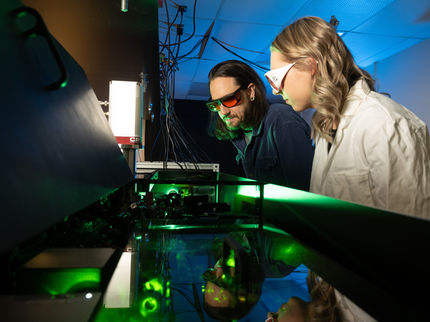Selenium makes more efficient solar cells
Advertisement
Call it the anti-sunscreen. That's more or less the description of what many solar energy researchers would like to find -- light-catching substances that could be added to photovoltaic materials in order to convert more of the sun's energy into carbon-free electricity.
Research reported in the journal Applied Physics Letters, published by the American Institute of Physics (AIP), describes how solar power could potentially be harvested by using oxide materials that contain the element selenium. A team at the Lawrence Berkeley National Laboratory in Berkeley, California, embedded selenium in zinc oxide, a relatively inexpensive material that could be promising for solar power conversion if it could make more efficient use of the sun's energy. The team found that even a relatively small amount of selenium, just 9 percent of the mostly zinc-oxide base, dramatically boosted the material's efficiency in absorbing light.
"Researchers are exploring ways to make solar cells both less expensive and more efficient; this result potentially addresses both of those needs," says author Marie Mayer, a fourth-year University of California, Berkeley doctoral student based out of LBNL's Solar Materials Energy Research Group, which is working on novel materials for sustainable clean-energy sources.
Mayer says that photoelectrochemical water splitting, using energy from the sun to cleave water into hydrogen and oxygen gases, could potentially be the most exciting future application for her work. Harnessing this reaction is key to the eventual production of zero-emission hydrogen powered vehicles, which hypothetically will run only on water and sunlight. Like most researchers, Mayer isn't predicting hydrogen cars on the roads in any meaningful numbers soon. Still, the great thing about solar power, she says, is that "if you can dream it, someone is trying to research it."
Most read news
Other news from the department science

Get the chemical industry in your inbox
By submitting this form you agree that LUMITOS AG will send you the newsletter(s) selected above by email. Your data will not be passed on to third parties. Your data will be stored and processed in accordance with our data protection regulations. LUMITOS may contact you by email for the purpose of advertising or market and opinion surveys. You can revoke your consent at any time without giving reasons to LUMITOS AG, Ernst-Augustin-Str. 2, 12489 Berlin, Germany or by e-mail at revoke@lumitos.com with effect for the future. In addition, each email contains a link to unsubscribe from the corresponding newsletter.


























































